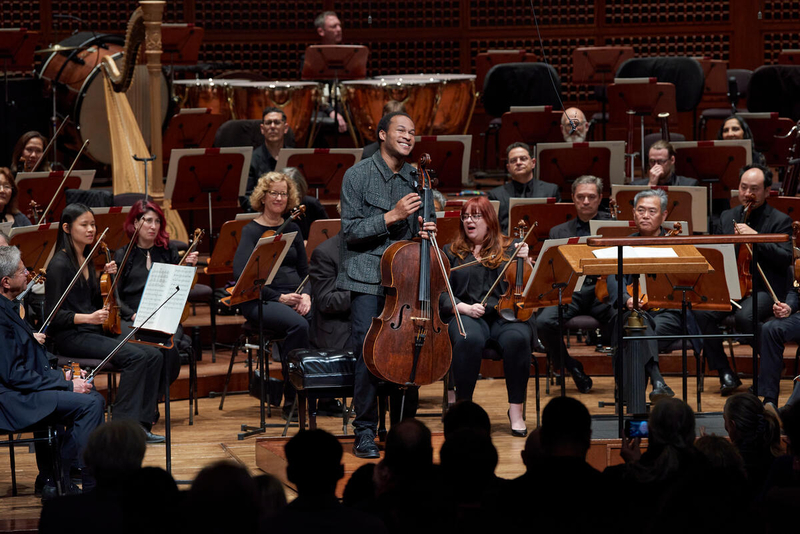
VINTAGE RUSSIAN MUSIC AT THE S.F. SYMPHONY
An enigmatic all-Russian program is winding down the S.F. Symphony season, raising provocative questions while posing as provocative protest pieces. All but a Tchaikovsky selection were written under the strict thought control of the Soviet Union in the 20th century. But, as musicians well knew, when neither literature, news media nor stage works permitted deviation from the party line, music was one viable dissent possibility if threaded skillfully.
None fit this elusive mold more than the “Fairytale Poem” composed for a Radio Moscow children’s play by the astute Sofia Gubaidulina in 1971, who got away with it. The narration deals with the fate of a piece of chalk, forced to draw uninspiring numbers and geometric shapes until used up, but thereafter via a child’s touch has a second life drawing beloved landscapes, seascapes, castles and gardens. She expanded her work into a jaunty, light-hearted orchestral piece without narration, but her protest point was not lost.
The 13-minute collection of sonic effects titillate the ear with delicate percussion, as eccentric as the children’s poem itself.
Not surprisingly, the enterprising Gubaidulina, 82, emigrated to Germany the first chance she had in the 1990s.
Shostakovich’s dour Cello Concerto No. 1 (1959) heads arguably in a similar direction; no work in a major key ever conveyed more of a depressing environment. Whenever played by great cellist Mstislav Rostropovich, who had premiered it, the sound was robust and the mood dark, as if he was determined to saw vehemently right through the instrument.
An unfamiliar soloist from England, Sheku Kanneh-Mason, took a lighter, more lyrical approach with his vintage Goffriller cello and brought it off handsomely, through all the tricky double stops and harmonics. The long Cadenza constituting the entire third movement featured the composer’s dreamy meanderings, before the sonic lightning bolts in the powerful finale. Kanneh-Mason is a major talent that one would hope to hear here again, though I ask myself how welcome he feels playing with orchestra on stage as the only Black musician in sight (which alas in U.S. orchestras even today is not at all unusual).
By way of encore, he played the unaccompanied Prelude No.18 by the Polish-Soviet composer Mieczyslaw Weinberg (1919-1996). Weinberg had been imprisoned by the Soviets but never condemned to a gulag.
The concert concluded with one of Tchaikovsky’s most passionate pieces ever, the programmatic tone poem “Francesca da Rimini.” Based on Dante’s ”Inferno,” it tells of the wayward lover Francesca after her illicit affair on Earth, portrayed amidst the orchestral tornados of Hell. The orchestra itself is wildly excessive, with unbridled blasts of brass and fortissimos. It’s always struck me as a bracing showpiece for large orchestra—beautifully rendered here by the SFS under Esa-Pekka Salonen—even though the composer himself later termed it a weak piece. Who am I to argue? It’s 25 minutes of sheer voluptuous outpourings transporting us to Dante’s Second Circle of Hell at no extra charge, a showpiece for an elite ensemble like the SFS.
S.F. SYMPHONY under Salonen in all-Russian program June 13-15, Davies Hall, San Francisco. For SFS info: (415) 864-6000, or go online, www.sfsymphony.org.